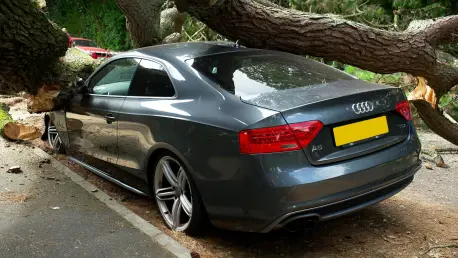What happens when a love for vintage automobiles masks a sinister plot for profit? Picture a world of gleaming chrome and roaring engines, where classic cars are not just vehicles but treasures—until someone exploits that passion for fraud. In a gripping case from the United Kingdom, a cunning scheme targeting high-value classic car insurance was unraveled, exposing a web of deceit that could have cost insurers millions. This story of betrayal and justice, centered on a determined insurer’s fight against crime, promises to reveal the hidden underbelly of a niche industry.
The significance of this case extends far beyond a single fraudster. Insurance scams, especially in specialized markets like classic car coverage, inflate premiums for honest policyholders and erode trust across the sector. With the collaboration between Aviva, a major insurance provider, and law enforcement, this incident underscores a critical battle against deception. It serves as a stark reminder of the stakes involved and the relentless efforts required to protect both industry integrity and consumer interests.
Unveiling a Hidden Scheme: A Classic Car Con Exposed
In the quiet town of Lamberhurst, Kent, a 32-year-old man named Danny Phipps crafted an elaborate ruse that fooled even seasoned insurers. What appeared as genuine enthusiasm for vintage vehicles hid a calculated plan to submit false claims, targeting prominent companies like Aviva and RSA. The audacity of this deception, spanning over a year, came to light through meticulous investigation, shattering the illusion of an innocent hobbyist.
The unraveling of this plot wasn’t just a stroke of luck. It required sharp instincts and persistent digging into discrepancies that didn’t add up. Suspicious patterns in claims for high-value cars raised red flags, prompting a deeper look into Phipps’ activities. This case highlights how seemingly small inconsistencies can lead to the exposure of major fraud, serving as a cautionary tale for insurers everywhere.
The impact of such schemes ripples outward, affecting more than just financial ledgers. Trust, a cornerstone of the insurance world, takes a hit when fraudsters exploit niche markets like classic cars, where emotional and monetary value intertwine. This incident became a pivotal moment, driving home the need for vigilance in an industry often seen as a safe haven for passion-driven investments.
Why Classic Car Insurance Fraud Strikes Deep
Insurance fraud is no minor issue—it’s a pervasive problem that burdens honest customers with higher costs. According to industry estimates, fraudulent claims contribute to billions in losses annually across the UK, with specialty areas like classic car insurance bearing a disproportionate share due to the high stakes involved. Each false claim pushes premiums upward, punishing those who play by the rules.
Classic cars, often valued for both rarity and nostalgia, present unique challenges in fraud detection. Their worth can be subjective, fluctuating based on condition, history, and market demand, making it easier for scammers to inflate values or stage damages. This vulnerability turns a beloved hobby into a potential goldmine for deceit, as seen in cases where insurers face exaggerated or entirely fabricated losses.
Beyond numbers, the emotional toll on enthusiasts cannot be ignored. Owners of vintage vehicles invest not just money but heart and soul into their collections, and fraud undermines the very community built around this shared passion. Addressing these scams becomes not just a financial imperative but a mission to preserve the spirit of an entire subculture.
The Danny Phipps Case: A Closer Look at Deception
Delving into the specifics, Danny Phipps orchestrated a 13-month scam that targeted Aviva and RSA with fabricated claims tied to high-value classic cars. Convicted on August 8 at Maidstone Crown Court, he received a 23-month prison sentence, suspended for 24 months, reflecting the severity of his actions. Though exact details of his methods remain undisclosed, the financial damage and sophistication of the fraud were undeniable.
This case exposes broader weaknesses in the classic car insurance market. Valuation disputes and limited oversight often create loopholes that fraudsters exploit, with industry reports suggesting that niche vehicle fraud accounts for a growing percentage of insurance crime in the UK. Phipps’ scheme serves as a stark example of how these gaps can be weaponized against even the most established companies.
The legal outcome also sends a powerful message about accountability. While the suspended sentence offers a chance for rehabilitation, it underscores that such deception carries serious consequences. This balance between punishment and leniency aims to deter future offenders while highlighting the judiciary’s role in tackling complex financial crimes within specialized sectors.
Aviva’s Pivotal Role: Teaming Up with Law Enforcement
Aviva emerged as a linchpin in dismantling Phipps’ fraudulent operation, going beyond the typical role of an insurer. By partnering with the City of London Police’s Insurance Fraud Enforcement Department, the company provided vital evidence and resources that strengthened the case. This collaboration proved essential in navigating the intricate web of false claims tied to vintage vehicles.
Industry experts emphasize the growing importance of such insurer-police alliances. A spokesperson from the insurance sector noted that joint efforts have led to a 30% increase in fraud convictions over the past few years in the UK, showcasing the power of shared expertise. Aviva’s commitment to rooting out deception sets a benchmark for others, proving that proactive involvement can turn the tide against crime.
Real-world examples further illustrate this trend. Similar partnerships have cracked cases ranging from staged accidents to inflated property claims, demonstrating that teamwork between private entities and public authorities is becoming a cornerstone of fraud prevention. Aviva’s role in this instance stands as a model for how corporate responsibility can directly contribute to justice.
Fighting Fraud: Safeguarding the Industry and Policyholders
Drawing lessons from the Phipps case, actionable strategies emerge to shield the classic car insurance sector from future scams. Insurers must adopt stricter verification for high-value claims, using advanced technology like AI-driven analytics to detect anomalies early. Such tools have already shown promise, with some firms reporting a 25% reduction in fraudulent submissions after implementation.
Policyholders, too, have a role to play by staying informed about red flags, such as unrealistic valuations or rushed claims processes. Educational campaigns can empower owners to protect their investments, while regulators should push for standardized appraisal guidelines to close existing loopholes. These combined efforts aim to shift the focus from reaction to prevention.
Strengthening ties with law enforcement remains crucial, as does raising public awareness about the ripple effects of fraud. By highlighting the consequences—both legal and financial—insurers can deter potential scammers while fostering a culture of integrity. Protecting this unique corner of the insurance world demands a united front, ensuring that passion for classic cars isn’t tainted by deceit.
Looking back, the collaboration between Aviva and law enforcement marked a turning point in addressing classic car insurance fraud. Their joint efforts not only brought Danny Phipps to justice but also illuminated vulnerabilities that needed urgent attention. This case served as a wake-up call for an industry at risk of exploitation.
Moving forward, the focus must remain on innovation and education to outpace fraudsters. Insurers are encouraged to invest in cutting-edge detection tools and share best practices across the sector. Policyholders should seek partnerships with trusted providers and advocate for transparency in valuations. Together, these steps can build a resilient framework that honors the legacy of vintage cars while safeguarding against future threats.









